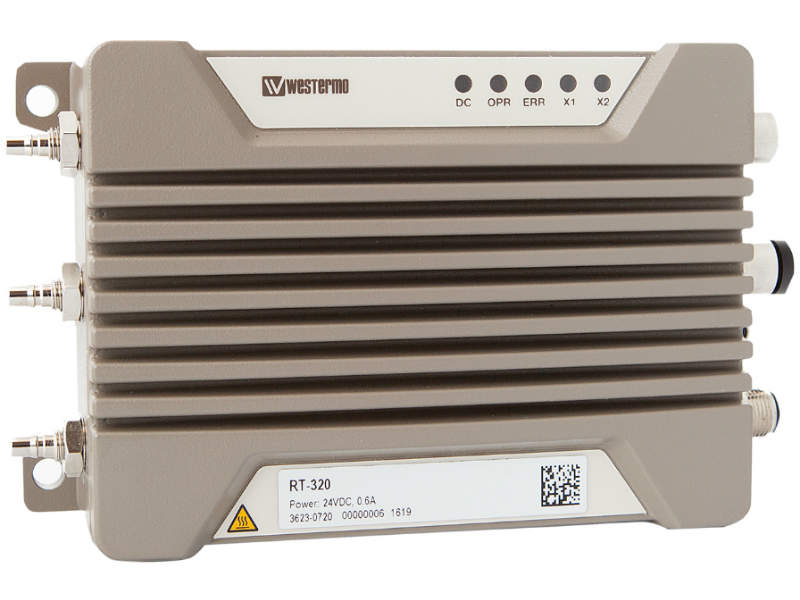
Westermo has launched a range of compact data networking products for on-board and trackside applications to meet the need for secure and reliable data connection to support railway digitisation.
The RT-310, RT-320 and RT-370 wireless local area network (WLAN) devices ensure reliable, continuous, high-speed data communications in extreme operational environments, supporting applications such as monitoring train speeds and track conditions, and providing on-board video surveillance and passenger hotspots.
The RT-310 and RT-370 are WLAN access points, which support multiple-input multiple-output (MIMO) high-speed data transfer. The RT-320 is a multiple-mode WLAN connection point, which can be configured as an access point, or as client and bridge modes.
The devices have been designed to provide robust solutions in applications where it is not possible to use network cables. These include transmitting information from a moving train to wayside monitoring stations and establishing a data connection between train carriages where a specialised coupler is not available for network cables.
Supporting reliable longer-distance communications, including those from train to ground, the RT-320 provides high output power, regardless of temperature, modulation and frequency band, to achieve stable connection.
To achieve seamless communication as a train moves along the track, the device provides fast handover support, enabling it to quickly switch from one trackside access point to the next.
A special Inter-Consist Link (ICL) mode meets the challenge of providing stable and secure communication between consists, without incurring the cost of installing communication cabling over the couplers.
The RT-310 is ideal for providing internet access to passengers, offering high input sensitivity that enables a good connection even to weak signals, while its fast connection support prevents passengers from enduring a long wait for connectivity to be established.
The RT-370 is designed specifically for infrastructure applications and has a direct mains input and direct fibre connection to support long-distance connections typically found in trackside installations.
Long-range and optimised wireless link spans enable the devices to offer highly reliable performance in mission-critical networks. Superior radio link performance is provided through high-end radio-frequency (RF) circuitry, and high-calibre RF front-end solutions for optimised operation near other WLAN, 3G or 4G networks. 2.4Ghz and 5Ghz radar bands are supported and robust Dynamic Frequency Selection features support improved radar detection.
The devices are approved to the EN 50121-4 standard for trackside applications, with the RT-310 and RT-320 also approved to the EN 50155 standard for onboard applications.
The products are designed to withstand the challenging environments and demands of rail applications, including constant vibration, extreme temperatures and humidity.
They are rated to IP66 for prevention of water and dust ingress, incorporate a GORE-TEX® membrane to prevent internal condensation and have an operating range of -40°C to 70°C. High-level isolation between all interfaces protects against overvoltage and flashover.
These features ensure reliability and an extended mean time between failures. A compact design enables easy installation into onboard applications and configuration is easy using a web management tool.
In addition to rail applications, all three devices are very well suited for deployment in other industries with severe operating conditions and tough environments such as mining.
